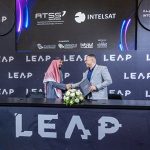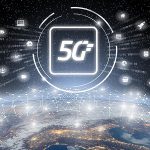The World Radiocommunication Conference 2023 will update Radio Regulations and allocate scarce radio-frequency spectrum.
 On November 20, the World Radiocommunication Conference 2023 (WRC-23) commenced in Dubai, marking a significant gathering of governments for deliberations on the allocation of radio-frequency spectrum. This quadrennial conference, organised by the International Telecommunication Union (ITU), will review and update the Radio Regulationsan international treaty governing spectrum use and satellite orbits.
On November 20, the World Radiocommunication Conference 2023 (WRC-23) commenced in Dubai, marking a significant gathering of governments for deliberations on the allocation of radio-frequency spectrum. This quadrennial conference, organised by the International Telecommunication Union (ITU), will review and update the Radio Regulationsan international treaty governing spectrum use and satellite orbits.
The opening ceremony saw the presence of Sheikh Ahmed bin Mohammed bin Rashid Al Maktoum, Second Deputy Ruler of Dubai, emphasising the event’s importance on a global scale.
For the opening, United Nations Secretary-General António Guterres said: The World Radiocommunication Conference is a testament to the power of international cooperation in tackling global challenges.” In the message delivered on his behalf, Guterres added: Radio frequencies, whether on Earth or in space, form the backbone of advanced communications for all of humanity. From education to healthcare, from agriculture to climate monitoring, expanding radiocommunication services and bridging the digital divide is key to reducing inequalities and advancing the Sustainable Development Goals.”
Much of the technology in everyday life uses radio-frequency spectrum? allocated by ITU’s world radiocommunication conferences. Ensuring that the Radio Regulations reflect the changing demand for spectrum use is critical for the efficient operation of existing and future radiocommunication services and equipment.
We are at an inflection point in tech history, and radiocommunications are at the top of the global agenda,” stated Doreen Bogdan-Martin, ITU Secretary-General. Equitably managed spectrum and the associated satellite orbits are among the best tools in our toolbox to make good on our commitment to build a digital future that works for everyone and for our planet.”
While today’s world is full of challenges, this conference comes to set the course and direct the compass toward sustainable human development by updating the Radio Regulations and establishing international consensus on the frequencies necessary for the coming era,” explained Eng. Majed Sultan Al Mesmar, Director General of the UAE Telecommunications and Digital Government Regulatory Authority (TDRA). With the broad horizons it brings in the fields of smart cities, digital economy, knowledge society, space and others, we are confident that this conference will achieve the results that meet the expectations and aspirations of our peoples.”
The WRC-23, hosted by TDRA, will run from November 20 to December 15, with Eng. Mohammed Al Ramsi, Deputy Director General for the Telecommunication Sector of TDRA, elected as the chair.
Mario Maniewicz, Director of ITU’s Radiocommunication Bureau, noted: This conference will revise and update the Radio Regulations to support the introduction of new radio-based technologies, systems, technologies and services and their growing spectrum requirements while continuing to protect the vital radio services we rely on today. Newer innovative technologies will allow us to better monitor our changing planet, and better connect communities and people everywhere: on land, at sea, in the air, and in space. I count on the spirit of cooperation of the ITU Membership and your technical expertise to make WRC-23 a resounding success and leave a legacy of prosperity for billions of people across the globe.”
The agenda includes crucial items such as identifying additional frequency bands for International Mobile Telecommunications (IMT), enhancing the regulatory framework for satellite orbits, utilising satellite technologies for broadband services in remote areas, and addressing the future of ultra-high frequency (UHF) broadcasting band.
The Radio Regulations, evolving since 1906, form a critical framework ensuring rational, equitable, efficient, and economical use of the radio-frequency spectrum, aiming to prevent harmful interference between different radiocommunication services.
WRC-23, preceded by the ITU Radiocommunication Assembly, anticipates the participation of 4,000 attendees, including delegates from ITU Member States and industry representatives, collectively working towards shaping the future of global radiocommunications.















































































